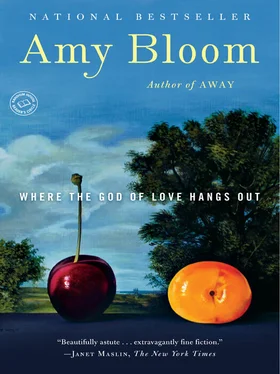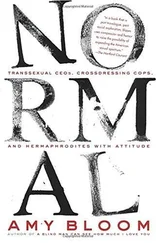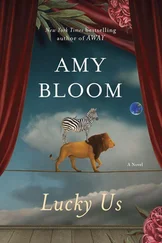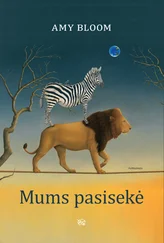“You’re only fifty-five. You’re the same age as Tina Turner.”
“Yup. And Tina is probably tired of meeting people, too. How about you — do you mind living alone?”
“I don’t exactly live alone—”
“You do. That’s exactly what you do — you live alone. And have relationships with people who are very happy to let you live alone.”
“Claudine’s really a lot of fun, Ma. You didn’t get to know her.”
“She may be a whole house of fun, but don’t tell me she inspires thoughts of a happy domestic life.”
“No.”
“That little girl could.”
I told her a few of my favorite Mirabelle stories, and she told me stories I had forgotten about me and my brother drag-racing shopping carts down Cross Street, locking our babysitter in the basement, stretching our selves on the doorways, and praying to be tall.
“We never made you guys say your prayers, we certainly never went to church, and we kept you far away from Grammy Ruth’s Never Forgive Never Forget Pentecostal Church of the Holy Fruitcakes. And there you two would be, on your knees to Jesus, praying to be six feet tall.”
“It worked,” I said.
“It did.” She stretched her legs down a few steps, and I saw that they were unchanged, still smooth and tan, with hard calves that squared when she moved.
“You ought to think about marrying again,” I said.
“You ought to think about doing it the first time.”
“Well, let’s get on it. Let’s find people to marry. Broomstick-jumping time in Massachusetts and Paree.”
My mother stood up. “You do it, honey. You find someone smart and funny and kindhearted and get married so I can make a fuss over the grandbabies.”
I saluted her with the wineglass. “Yes, ma’am.”
“Good night. Sleep tight.”
“Good night, Ma.”
I waited until I heard the toilet flush and the faucets shut, and I listened to her walk across her bedroom and heard her robe drop on the floor, and I could even hear her quilt settle down upon her. I drank in a serious way, which I rarely do, until I thought I could sleep. I made to lay my glasses on the rickety nightstand and dropped them on the floor near my clothes. Close enough, I thought, and lay down and had to sit up immediately, my eyes seeming to float out of my head, my stomach rising and falling in great waves of gin and Merlot. Stubbing my toe on the bathroom doorframe, I reached for the light switch and knocked over a water glass. I knew that broken glass lay all around me, although I couldn’t see it, and I toe-danced backward toward the bed, twirling and leaping to safety. I reached for my glasses, hiding on the blue rug near my jeans, and somehow rammed my balls into the pink and brown Billie Holiday lamp. I fell to the floor, hoping for no further damage and complete unconsciousness.
My naked mother ran into the room. I was curled up in a ball, her feet beside my ass. She knelt down, pushing back my hair to get a better look at me. Her breasts swung down, half in, half out of the hallway’s dusty light.
“You do not have a scratch on you,” she said, and patted my cheek. “Walk over toward the door — there’s nothing that way. I’ll get a broom.”
I could see her, both more and less clearly than I would have liked. She pushed herself up, and the view of her folded belly and still-dark pubic hair was replaced by the sharp swing of her hips, wider now, tenderly pulled down at the soft bottom edges, but still that same purposeful, kick-down-the-door walk.
She came back in her robe and slippers, with a broom and dustpan, and I wrapped a towel around my waist. I stood up straight so that even if she needed glasses as much as I did what she saw of me would look good.
“Quite the event. Is there something, some small thing in this room, you didn’t run into?”
“No,” I said. “I think I’ve made contact with almost everything. The armchair stayed out of my way, but otherwise, for a low-key kind of guy, I’d have to say I got the job done.”
My mother dumped the pieces of glass and the lightbulb and the lamp remains into the wastebasket.
“You smell like the whole Napa Valley,” she said, “so I won’t offer you a brandy.”
“I don’t usually drink this way, Ma. I’m sorry for the mess.”
She put down the broom and the dustpan and came over to me and smiled at my towel. She put her lips to the middle of my chest, over my beating heart.
“I love you past speech.”
We stood there, my long neck bent down to her shoulder, her hands kneading my back. We breathed in and out together.
“I’ll say good night, honey. Quite a day.”
She waved one hand over her shoulder and walked away.
“It’s six-fifteen,” Lionel says to his stepmother. “Decent people have started drinking.”
“Maybe I should put out some food,” Julia says.
Lionel nods, looking around for the little cluster of liquor bottles Julia had thrown out when his father was alive and trying to stay sober, and which she replaced on the sideboard as soon as the man passed away. Lionel’s not sorry he’s dragged himself and his stepson from Paris to Massachusetts for their first trip together, but it seems possible, even probable, that this Thanksgiving weekend will be the longest four days of his life.
“It’s all over with Paula?” Julia doesn’t sound sorry or not sorry; she sounds as if she’s simply counting places at the table.
“Yeah. Things happen.”
“Do you want to tell me more about it?”
“Nothing to tell.”
After his first wife, the terrible Claudine, Lionel had thought he would never even sleep with another woman, but Paula had been the anti-Claudine: not French, not thin, not mean. She was plump and pretty, a good-natured woman with an English-language bookstore and a three-year-old son. It did not seem possible, when they married in the garden of the Hôtel des Saints-Pères, with Paula in a short white dress and her little boy holding the rings, that after five years she would be thin and irritable and given to the same shrugs and expensive cigarettes as the terrible Claudine. After he moved out, Lionel insisted on weekly dinners and movie nights with his stepson. He wants to do right by the one child to whom he is “Papa,” although he has begun to think, as Ari turns eight, that there is no reason not to have the boy call him by his first name instead.
“Really nothing to tell. We were in love and then not.”
“You slept with someone else?” Julia asks.
“Julia.”
“I’m just trying to see how you got to ‘not.’”
“I bet Buster told you.”
“Your brother did not rat on you.” He had, of course. Buster, the family big-mouth, a convert to monogamy, had told his mother that Lionel slept with the ticket taker from the cinema Studio 28, and Julia was not as shocked as Buster had hoped she would be. “A cutie, I bet,” was all she said. (The beauty of Lionel’s girlfriends was legendary. Paula, dimpled, fair, and curvy in her high heels, would have been the belle of any American country club, and even so was barely on the bottom rung of Lionel’s girls.)
Buster talks about everything: his wife’s dissolving sense of self, Jordan’s occasional bed-wetting, Corinne’s thumb-sucking, all just to open the door for his own concerns and sore spots — his climbing weight, his anxiety about becoming a judge so young. Julia thinks that Buster is a good and fine-looking man, and tall enough to carry the weight well, although it breaks her heart to see her boy so encumbered. She knows that he will make a fine judge, short on oratory and long on common sense and kindness.
“Even in my day, honey, most people got divorced because they had someone else on the side and got tired of pretending they didn’t.” Julia herself had been Lionel senior’s someone on the side before she became his wife.
Читать дальше












